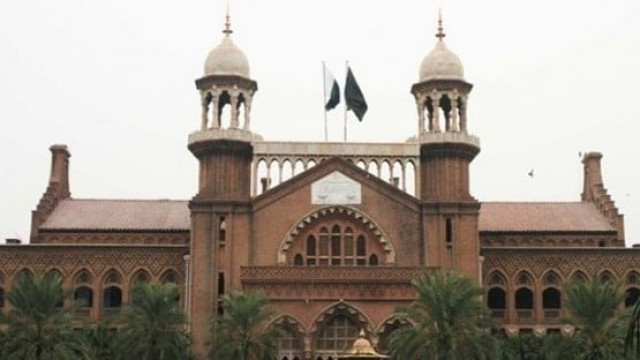LHC directs PHC to establish body for regular licenses, halt provisional license
Justice Tariq gives govt, medical authorities 90 days to complete process, clinical audit of C-sections in province

The Lahore High Court (LHC) on Tuesday directed the Punjab Government and the Punjab Healthcare Commission (PHC) to ensure that healthcare establishments do not operate on provisional licenses for an indefinite period.
"They are to specify a time frame within which these establishments must acquire regular licenses," it ruled.
Justice Tariq Saleem Sheikh issued five guidelines in a detailed judgment in response to a case where a female petitioner was admitted to Prime Care Hospital in Faisalabad for the delivery of her baby but ended up suffering from paralysis.
"The Commission must enhance its capacity to fulfill its duties under the PHC Act, and the government is directed to allocate necessary funds for this purpose," the judge ordered.
He further added that the Commission shall "immediately develop standards to regulate healthcare services related to C-section procedures in consultation with a technical advisory committee, the Society of Obstetricians and Gynecologists Pakistan (SOPGP), the Pakistan Society of Anesthesiologists (PSA), and other stakeholders."
Justice Tariq gave the government and other relevant authorities 90 days to complete the process. His directives further stated that the standards should particularly include a mechanism for the clinical audit of all C-sections performed in the province.
Read Hospital heads to be hired as per merit, says ministry
"All consultants and healthcare establishments must submit separate statements/reports every six months, detailing the C-sections they performed during that period. The Commission shall conduct a compulsory clinical audit of all healthcare establishments and consultants whose figures exceed the WHO rate."
Case history
The petitioner, Fareeha Kanwal, visited Prime Care Hospital in Faisalabad to give birth. After her admission, she was initially told that the birth would be regular, but she was later operated on.
Upon regaining consciousness the following morning, doctors discovered that the lower part of her body was paralyzed. After examination, it was found that she had lost control of her urine and stool and could not pass them without a catheter bag and enema.
Later, the petitioner filed a complaint with the Healthcare Commission against PCH and its doctors, alleging medical negligence, maladministration, and malpractice in the treatment of her delivery case.
It was revealed that an anesthetist administered her epidural, which was partially ineffective. Consequently, another respondent (anesthetist) provided a second epidural. Meanwhile, the doctor decided to perform a C-section. During preliminary proceedings, the commission recorded evidence from the parties and sought opinions from one neurologist and two anesthesia experts. The original operation notes were not available in the patient file either.
However, after a detailed hearing, the commission declared that "the decision of the Consultant Gynecologist to perform the C-section on the petitioner was justified."
"The exact cause of severe Radiculopathy-Plexopathy of the lumbar area developed by the petitioner could not be established according to the duplicate clinical notes. The question of whether respondents 6 and 7 committed medical negligence, and to what extent in administering epidural anesthesia to the petitioner, requires further investigation."
The Commission imposed a fine of Rs300,000 on the hospital, 20% of which, when recovered, shall be paid to the petitioner. It also directed the PHC to improve its score on the MSDS Table to 70% within three weeks and take necessary action following the law upon failure.
The petitioner then challenged the commission’s order in LHC.
Petition
In her appeal, she contended that the respondents removed, or caused to be removed, the original operation notes from her file to shield themselves from civil and criminal liability. They had thus committed an offence under section 201 PPC.
The Commission was, therefore, required under section 26(2) of the PHC Act to direct the registration of an FIR against them. She further prayed that the commission was obliged to declare the doctors guilty of medical negligence before referring their case to the PMC and that the fine imposed on PCH was disproportionate to the offence it had committed.
"It should, therefore, be increased from Rs. 300,000 to Rs. 500,000," she said, adding that the PCH should be sealed and banned from providing any healthcare facilities.
However, the District Judge held that section 31 of the Punjab Healthcare Commission Act 2010 provides appeals against only five kinds of orders. The petitioner's appeal is beyond the scope of that section. In particular, no appeal lies against the Commission’s order fixing responsibility upon any delinquent and for the enhancement of a fine.
Subsequently, the judge dismissed the petitioner’s appeal as not being maintainable."



















COMMENTS
Comments are moderated and generally will be posted if they are on-topic and not abusive.
For more information, please see our Comments FAQ